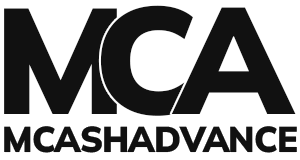
Are you an entrepreneur looking for funding options for your startup? Without a track record of a year or two in business, it can be challenging to secure funding for your startup from traditional lenders like banks.
However, there are alternative options worth considering, and in this article, we discuss one of those alternative financing options called Merchant Cash Advances (MCAs).
We’ll explore whether an MCA could be a suitable choice to fund your startup and discuss the eligibility criteria based on what state your startup is in. We’ll also cover the potential benefits and drawbacks of MCAs for your startup, in comparison to other funding options.
Let’s dive in and figure out if an MCA might be a good choice to fund your startup.

Can a Startup Get an MCA?
To qualify for an MCA, your startup must have at least six months of business history and generate a minimum of $8,000 in monthly credit card sales. If you don’t meet these criteria, your startup won’t be eligible for MCA funding right now.
If your startup meets the minimum criteria, that’s excellent news! Now, let’s delve into the types of startups that are commonly successful in securing MCA funding.
Which Startups Are Most Likely to Secure an MCA?
Your startup is a good fit for an MCA if your business processes regular credit card sales. The chance of approval is even higher if your business is in an industry that MCA providers are familiar with. Popular industries for MCA funding include tech and ecommerce, as well as traditional businesses like retail, restaurants, and salons. Steady credit card sales in these industries make them ideal for MCA funding.
Why Would a Startup Choose an MCA as a Source of Funding?
As the founder of a startup, you’re probably already familiar with the difficulty of getting a traditional loan when you’re in startup mode. Banks are wary of lending to startups because they lack credit history, collateral, and the trading history needed to evaluate the risk of lending to your startup. These stringent requirements can seem impossible to meet if you’re just getting off the ground and urgently need capital to move forward.
MCAs on the other hand, offer startups a way to overcome those obstacles. Rather than focusing on credit histories or demanding collateral, MCA providers focus on your recent credit card sales. This makes the process particularly suited for any startup that has a strong volume of card transactions but may not meet other requirements. MCAs also have quicker approvals and less paperwork, making them easier to get as a startup.
Benefits of MCAs for Startups
Below is a table highlighting 7 unique benefits of MCAs for Startups:
| Benefit | Description |
|---|---|
| 1. No Equity Sacrifice | An MCA allows you to secure capital without selling company shares, ensuring you maintain ownership. |
| 2. Increased Liquidity | For startups, where quick access to capital is rare, an MCA provides immediate liquidity based on future sales. |
| 3. Acts as Bridge Financing | MCAs can serve as a financial bridge between funding rounds, or while waiting for other capital sources, making it ideal for startups in transitional phases. |
| 4. Support for Seasonal Inventory | If your startup experiences seasonal sales spikes, an MCA can help finance inventory to prepare for peak demand. |
| 5. Flexibility to Pivot Business Model | An MCA provides the capital that allows you to quickly adapt your business model, a key advantage for startups in rapidly changing markets. |
| 6. Initial Marketing and Customer Acquisition | Startups often need aggressive marketing to scale; MCA funds can be rapidly deployed for customer acquisition strategies. |
| 7. Useful when Bootstrapping | If your startup is already generating decent credit card sales, an MCA offers the financial independence to continue bootstrapping without seeking external investors. |
For more benefits read 20 benefits of an MCA.
Drawbacks of MCAs for Startups
Below is a table highlighting 5 unique drawbacks of MCAs for Startups:
| Drawback | Description |
|---|---|
| 1. Missed Credit Building Opportunity | On-time repayment of an MCA doesn’t improve your startup’s creditworthiness, as MCAs are not reported to credit bureaus. |
| 2. Immediate Repayments | A percentage of cash is deducted from your credit card sales daily, lessening your startup’s cash flow, unlike investment capital which doesn’t require immediate repayment. |
| 3. Negative Investor Perception | Using high-cost MCAs may deter future potential investors, who could view this financing method negatively. |
| 4. Personal Guarantee Risk | Most MCA providers will require a personal guarantee as part of the MCA agreement, meaning you’re legally obligated to repay the MCA even if your startup fails. |
| 5. High-Risk Status | MCA providers often view startups as high-risk due to limited business history, leading to higher rates and less favorable terms. |
For more drawbacks read 10 drawbacks of an MCA.
Comparing MCAs with Other Funding Options
Understanding the differences between other types of startup funding can also help confirm if an MCA might be right for your startup. Here’s how MCAs compare to other popular options:
Crowdfunding vs. MCAs
Both allow you to maintain ownership. However, crowdfunding requires you to create a compelling story and marketing strategy to attract backers, while MCAs providers fund your startup based on credit card sales without having to create a compelling story or creating a public campaign. Fundable is an example of a crowdfunding platform for startups.
Angel Investments vs. MCAs
Angel investments offer smaller sums of funding, mentorship and networking but require you to give up some ownership in your startup. MCAs provide immediate funding without diluting ownership but don’t offer the added value of an investor expertise. Crunchbase has a great list of angel investors in the USA.
Venture Capital Funding vs. MCAs
Venture capital provides large sums of funding and access to resources but requires giving up equity in your startup and rigorous due diligence. MCAs offer fast funding based solely on credit card sales, allowing you to keep more ownership in your startup.
Where to Find Cash Advance Funding for Your Startup
If an MCA fits your startup, knowing where to secure this funding is crucial. At MCashAdvance, we specialize in MCAs for eligible startups. Apply for an MCA now or learn more about merchant cash advances.
Ready to Apply?
or learn more about online merchant cash advance
The Bottom Line
Securing an MCA is not only possible for established businesses but also for startups and new ventures. The key is to meet the basic eligibility criteria, which typically include being in business for at least six months and generating a minimum of $8,000 in monthly credit card sales.
However, it’s not just about ticking off these boxes. To increase your chances of approval, you should contact any MCA provider you intend to apply to and ask them if they fund many startups in the industry you are operating in. Focusing on only applying to MCA providers who express initial interest in funding your startup will increase your chances of getting a cash advance.

